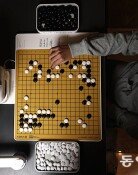[Opinion] Composite Photographs
[Opinion] Composite Photographs
Posted December. 09, 2005 07:38,
Photographs are reproductions of something that exists. They record reality. So during the Japanese colonial period, there were things called photograph marriages. Korean workers on sugarcane plantations in Hawaii shipped their photographs to Korea when looking for a wife.
Since photographs do not lie, the first generation immigrant couples were mostly matched through the photos. In the past, artistic photographs were valued by how well the photo reproduced reality. Art and historical value was derived from unaltered truth.
But it is no longer the analogue era. Anyone can change digital images once they learn to use a computer. Alterations and changes are no longer the exception, they are the norm. At town offices, workers often reject papers because they find that the pictures on the papers and the real person look completely different. There are many times when a picture on a resume and the interviewee at job interviews look like two different people.
Are photographs, once a record of truth, now distorting the truth?
Parody pictures on the Internet tell us of reality. One Internet portal site has 274 clubs registered under the word composite. Composite photographs are now a part of the Internet culture and netizens. These parody pictures have featured composite photographs of the opposition party leader on bed, members of the National Assembly nude, and a gun to the presidents head, causing political controversy.
Parody pictures have stepped over the boundary of freedom of expression, and are now infringing on the peoples right to privacy and human dignity.
Some people pasted the faces of 73 female celebrities on porn stars bodies, and uploaded them 242 times on adult sites. These people were found and sentenced to six months in jail. This case brings to memory a book written 20 years ago, which predicted the trends of the 21st Century. It predicted that the 21st Century will be an era of four Fs: fiction, fashion, feeling, and femininity. This case can be described with all these four words. Maybe it will be even more exact if fall, meaning sin and degradation, is included on the list.
Editorial Writer, Kim Chung-sik, skim@donga.com





![[사설]계엄 때보다 낮은 지지율 17%… 국힘의 존재 이유를 묻는 민심](https://dimg.donga.com/c/138/175/90/1/wps/NEWS/IMAGE/2026/02/26/133433702.1.jpg)

